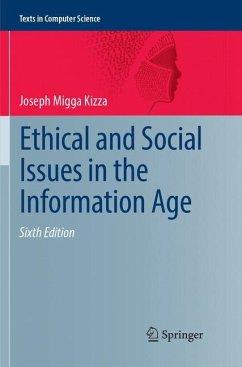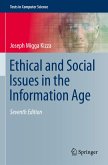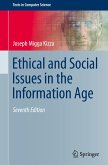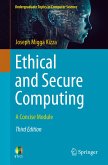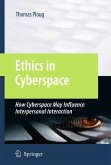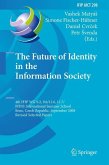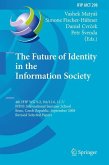This engaging and thought-provoking textbook examines the ethical, social, and policy challenges arising from our rapidly and continuously evolving computing technology, ranging from the Internet to the ubiquitous portable devices we use to access it. The text emphasizes the need for a strong ethical framework for all applications of computer science and engineering in our professional and personal life.
This thoroughly revised and updated sixth edition features two new chapters covering online harassment and cyberbullying, and the complex issues introduced by the emergence of the Internet of Things (IoT).
Topics and features: establishes a philosophical framework and analytical tools for discussing moral theories and problems in ethical relativism; offers pertinent discussions on privacy, surveillance, employee monitoring, biometrics, civil liberties, harassment, the digital divide, and discrimination; examines the ethical, cultural and economic realities of mobile telecommunications, computer social network ecosystems, and virtualization technology; reviews issues of property rights, responsibility and accountability relating to information technology and software; explores the evolution of electronic crime, network security, and computer forensics; introduces the new frontiers of ethics: virtual reality, artificial intelligence, and the Internet; discusses the security quagmire of the IoT, and the growing threat of bullying facilitated by electronic technology (NEW); provides exercises, objectives, and issues for discussion with every chapter.
This extensive textbook/reference addresses the latest curricula requirements for understanding the cultural, social, legal, and ethical issues in computer science and related fields, and offers invaluable advice for industry professionals wishing to put such principles into practice.
This thoroughly revised and updated sixth edition features two new chapters covering online harassment and cyberbullying, and the complex issues introduced by the emergence of the Internet of Things (IoT).
Topics and features: establishes a philosophical framework and analytical tools for discussing moral theories and problems in ethical relativism; offers pertinent discussions on privacy, surveillance, employee monitoring, biometrics, civil liberties, harassment, the digital divide, and discrimination; examines the ethical, cultural and economic realities of mobile telecommunications, computer social network ecosystems, and virtualization technology; reviews issues of property rights, responsibility and accountability relating to information technology and software; explores the evolution of electronic crime, network security, and computer forensics; introduces the new frontiers of ethics: virtual reality, artificial intelligence, and the Internet; discusses the security quagmire of the IoT, and the growing threat of bullying facilitated by electronic technology (NEW); provides exercises, objectives, and issues for discussion with every chapter.
This extensive textbook/reference addresses the latest curricula requirements for understanding the cultural, social, legal, and ethical issues in computer science and related fields, and offers invaluable advice for industry professionals wishing to put such principles into practice.
"Kizza's book is still a useful textbook for a course that is hard to teach. It is encyclopedic in scope." (Anthony J. Duben, Computing Reviews, November 27, 2023)
From the reviews of the third edition:
"It is encouraging to encounter a textbook for undergraduate students that is devoted to information age ethics ... . This third edition contains three new chapters. ... I appreciate Kizza's work in the ethical education of information technology (IT) students. ... Overall, I recommend this very basic ... but significant educational topic as an introductory text." (Brad Reid, ACM Computing Reviews, December, 2008)
From the reviews of the fourth edition:
"It could work in a computers and society course for students majoring in information technology or in a general education computers and society course for students with other majors. ... Companies that have a serious and ongoing commitment to ethical and privacy issues might use the book as a reference. ... I recommend this book to those who develop computer and business ethics coursework; it is as good as any other option available." (J. Fendrich, ACM Computing Reviews, October, 2010)
"It is encouraging to encounter a textbook for undergraduate students that is devoted to information age ethics ... . This third edition contains three new chapters. ... I appreciate Kizza's work in the ethical education of information technology (IT) students. ... Overall, I recommend this very basic ... but significant educational topic as an introductory text." (Brad Reid, ACM Computing Reviews, December, 2008)
From the reviews of the fourth edition:
"It could work in a computers and society course for students majoring in information technology or in a general education computers and society course for students with other majors. ... Companies that have a serious and ongoing commitment to ethical and privacy issues might use the book as a reference. ... I recommend this book to those who develop computer and business ethics coursework; it is as good as any other option available." (J. Fendrich, ACM Computing Reviews, October, 2010)

